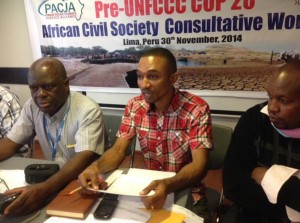
Amidst cautious optimism, African civil society groups under the umbrella of the Pan-African Climate Justice (PACJA) have called for a draft text to be adopted in Paris next year that will commit countries to reducing their greenhouse gas emissions.

Amidst cautious optimism, African civil society groups under the umbrella of the Pan-African Climate Justice (PACJA) have called for a draft text to be adopted in Paris next year that will commit countries to reducing their greenhouse gas emissions.
Against the backdrop of the World AIDS Day 2014, Development Communications (DevComs) Network and its partners on the NOTAGAIN Campaign urge the Nigerian government to save women and children’s lives by adequately investing in prevention of mother-to-child transmission of HIV (PTMCT) and maternal health care for a healthy nation.
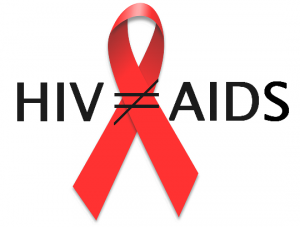 This appeal is premised on the World Health Organisation’s (WHO) recommendation in the Global Health Sector Strategy on HIV/AIDS 2011-2015, which advised countries to strengthen linkages between HIV and maternal, newborn and child health services and address sexual and reproductive health and rights issues by integrating HIV prevention, testing and counselling services into sexual and reproductive health services.
This appeal is premised on the World Health Organisation’s (WHO) recommendation in the Global Health Sector Strategy on HIV/AIDS 2011-2015, which advised countries to strengthen linkages between HIV and maternal, newborn and child health services and address sexual and reproductive health and rights issues by integrating HIV prevention, testing and counselling services into sexual and reproductive health services.
The strategy document demands that “HIV services should be integrated within a package of core interventions for maternal, newborn and child health; including high-quality antenatal, prenatal and postnatal services; prevention, screening and care for malaria and tuberculosis; syphilis screening and care; skilled birth attendance backed by emergency obstetric care; and newborn and child care, infant feeding support, immunisation and family-centered nutritional care and support.”
Accountability in PMTCT care and prevention of maternal newborn and child deaths are essential to restore the hope of care receivers in Nigeria. About 300 members of the Network of People Living With HIV/AIDS recently shut the office of the National Agency for the Control of AIDS (NACA), for dwindling access to anti-retroviral drugs and withdrawal of financial support to HIV/AIDS by donor organisations.
It is also a fact that HIV is the leading cause of deaths among women of reproductive age. According to a statement released by National Agency for the Control of AIDS (NACA) for the World AIDS Day 2014, 54% of pregnant women in low- and middle-income countries did not receive an HIV test in 2013; and almost 60% of all new HIV infections among young people aged 15–24 occurred among adolescent girls and young women.
The WHO says the World AIDS Day 2014 is designed to close the gaps in HIV prevention and treatment, owing to the fact that too many people still lack access to comprehensive HIV treatment and prevention services. The World health governing body states in its new release for this year’s World AIDS day that “Sub-Saharan Africa is the most affected region, with 24.7 million people living with HIV in 2013 and accounts for almost 70% of the global total of new HIV infections.
“There were approximately 35 million people living with HIV at the end of 2013 with 2.1 million people becoming newly infected with HIV in 2013 globally.”
In bridging the gap in HIV treatment and prevention, Nigeria recently launched a National Operational Plan for the period of 2015-2016, targeted at the Elimination of Mother to Child Transmission of HIV in Nigeria. Speaking at the launch Professor John Idoko, the Director General of NACA had explained that eliminating Mother to Child Transmission of HIV has ripple effects on the Millennium Development Goals, (MDGs) 3, 4, 5 and 6.
“The national programme for the Prevention of Mother to Child Transmission (PMTCT) of HIV started in 2001 with actual services delivery taking off in six (6) tertiary institutions in 2002. Since then the programme has been expanded to the primary and secondary health facilities in order to bring the services closer to the communities. Achieving the Elimination of Mother to Child Transmission (EMTCT) is inextricably linked with and directly contributes to the Millennium Development Goals (MDGs), especially MDG 3, (Gender Equality), MDG 4, (reduce child mortality) and MDG 5 ( improve maternal health) and MDG 6 ( combat HIV/AIDS). This positions EMTCT as an important part of the maternal and child health and the overall development agenda,” he said.
It should also be noted that, Elimination of Mother to Child Transmission (EMTCT) cannot be effective without proper prevention of new infections and prevention of mother to child transmission of HIV. The World Health Organisation in a July 2014 “consolidated guidelines on HIV prevention, diagnosis, treatment and care for key populations” recommended a four-pronged approach to PMTCT. The approaches include primary prevention of HIV infection among women of childbearing age, preventing unintended pregnancies among women living with HIV, preventing HIV transmission from women living with HIV to their infants, and providing appropriate treatment, care, and support to mothers living with HIV, their children and families.
Speaking about preventing HIV among women of childbearing age and preventing unintended pregnancies among women living with HIV, the Advocacy Advisor, Nigerian Reproductive Health Initiative (NURHI), Mrs. Charity Ibeawuchi, said correct and consistent use of male and female condoms could protect against the spread of sexually transmitted infections including HIV.
She then charged the government on speedy passage and implementation of the National Health Bill in order to release resources for Reproductive Health and other health services and reduce Nigeria’s dependence on external donors and funders.
DevComs believes that achieving complete Elimination of Mother to Child Transmission (EMTCT) goes beyond pronouncement. It entails actions and political will from health workers to the national government. Adequate funding is required for effective implementation of the operational plan and should be carried out in line with WHO standards and guidelines that stipulate integration with MNCH. Nigerians can no longer wait for promises made without fulfilment. The allocation of at least 15% of total budget to fund health in Nigeria, as stipulated by the Abuja Declaration of 2001 will also go a long way to fast track the implementation of health strategies developed in Nigeria.
Seven Greenpeace activists on Sunday, November 30, 2014 projected the message “Act for the climate! Go solar!” onto the hill of Wayna Picchu to mark the beginning of the end of coal- and oil-driven economies. As the UN climate summit gets underway in Lima, Greenpeace is asking decision-makers attending the 20th session of Conference of the Parties (COP 20) to adopt a new course and lead us to 100% renewable energy for all by 2050.
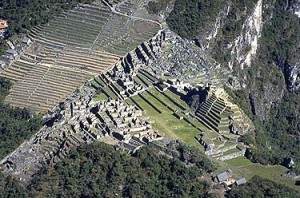
The activists, from Brazil, Argentina, Chile, Spain, Austria and Germany, climbed 3,000 steep steps along the trail to Machu Picchu in the early hours of Sunday morning under foggy weather conditions. The message was projected in the following six languages: English, Spanish, Portuguese, German, French and Hindi.
Greenpeace Head of Climate Politics Martin Kaiser said: “The Temple of the Sun in Machu Picchu is where we are announcing to the world that, as the power of the sun is our past, it is also our future. We urge summit attendees to commit to the world’s largest source of energy – the sun – to solve our global climate crisis. The US and China’s recent announcement is a turning point and must spur a global commitment to the ambitious goal of 100% renewable energy for everyone. At COP 20, we call on major emitter countries in particular to table bold commitments for 2025. The whole world is watching – now is the time to act.”
The climate summit convenes ministers of 194 countries for the annual Conference of the Parties to negotiate for the next 12 days the legally binding text that will become next year’s Paris Protocol. It will provide an early insight into what we may expect from the agreement with regard to the long-term phase-out of coal-fired power plants, the rate of deployment of renewable energies, and the financial and technological support for the vulnerable and least developed countries.
By March 2015, each country must have tabled their national climate targets. Greenpeace believes all countries should present concrete commitments for 2025 to accelerate the transformation towards 100% renewable energy by 2050. These commitments need to be improved every five years to ensure both political accountability and technological development.
Greenpeace Climate and Energy campaigner Mauro Fernandez said: “As the hosts of this year’s climate summit, Latin Americans want to share with the world our first-hand experience with the severe impacts of climate change. The global community is awakening and bold action is needed to solve the root cause of our climate crisis. We can no longer delay the transition from fossil fuels to renewable energy systems. In particular, it’s essential that Brazil – as the largest economy in the region – commits to ending deforestation by 2020 and significantly reducing its emissions towards 2025. It’s essential that the negotiations in Lima propel us toward a major international agreement in Paris next year.”
Twenty-three years after it was first formulated in 1991 and 15 years after its revision in 1999, Nigeria has embarked on the process of reviewing the National Policy on Environment (NPE) blueprint.
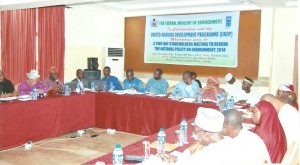
The endeavour is informed by the fact that the existing policy document is outdated, in the light of the emergence in recent years of topical issues that require urgent attention and policy guidelines to address.
For two days last week in Abuja, stakeholders tabled the text for scrutiny and attempted to redefine holistic NPE framework to guide the management of the environment as well as natural resource.
Mede Nana Fatima, Permanent Secretary in the Federal Ministry of Environment (FMoE), said at the opening of the event that, in order for the ministry to deliver on its mandate, a key instrument that will guide it is the NPE.
She added: “Nigeria formulated its first Policy on Environment in 1991. The document was revised in 1999 and for 15 years running, the nation has been using the same document despite the continuous emergence of topical environmental issues that require attention and relevant policy guidelines to address.
“It is in consideration of the above and the need to appreciate the trade-offs between present and future consumption pattern of our resources and the challenges imbedded therein that call for careful analysis of the situation in order to effectively and efficiently facilitate the exploration and exploitation of these resources to achieve sustainable economic growth that informed the ministry of the need to carry out a holistic review of the policy.”
Director of Planning, Research & Statistics, FMoE, Yomi Ladapo (represented by Halima Mohammed, Assistant Director & GEF Desk Officer), submitted that the environment is the life supporting system for human existence and survival, as it provides much of the physical social setting and the raw materials required for socio-economic progress.
“Nevertheless, we have no choice than to interact with it. But human interaction, natural disaster and climate change are putting so much pressure and impact on the quality of our environmental conditions. If the environment is properly managed, it can also be a productive resource to meet our socio-economic and tasteful needs, not only for today, but also for future generations. The objective of the meeting is to redefine holistic National Policy on the Environment framework to guide the management of the environment and natural resources of the country.”
At the United Nations Development Programme (UNDP)-supported event, Pa Lamin Beyai, UNDP Country Director (represented by Muyiwa Odele, Team Leader, Environment & Sustainable Development), described the review and validation meeting of the NPE as a crucial step in capturing diverse views and perspectives of all stakeholders, and establishing the multi-sectoral partnership needed for successful implementation.
According to him, the new NPE is expected to reflect key emerging issues from the Post 2015 development dialogues/agenda and the linkages with climate change and disaster risks management in the country.
Nnimmo Bassey, environmental activist and member of the NPE review process, observed: “A review of the NPE has been long overdue. A lot of things have changed since the current policy was prepared and the need to have a comprehensive review cannot be over emphasised.
“A policy of this nature is a coherent blueprint that brings in one document all key actions that need to be taken on the environment. We have a peculiar situation in Nigeria where laws and regulations on the environment are scattered in various Acts and laws that are not focused on the environment. The Policy helps to focus attention on actions that must be taken to ensure that we consider sustainability as the bedrock for all we do.
“I’m impressed with the inputs brought by government agencies into the document via the validation process. What remains once the policy is adopted will be, as they say, the political will to consider the environment and the people before the profit requirements of corporations and agencies whose focus is to plunder our resources.”
The policy identified key sectors requiring integration of environmental concerns and sustainability with development. It presented specific guidelines for achieving sustainable development in the following fourteen sectors of Nigeria’s economy: Human Population; Land Use and Soil Conservation; Water Resources Management; Forestry, Wildlife and Protected Natural Areas; Marine and Coastal Area Resources; Sanitation and Waste Management; Toxic and Hazardous Substances; Mining and Mineral Resources; Agricultural Chemicals; Energy Production; Air Pollution; Noise in the Working Environment; Settlements; Recreational Space, Green Belts, Monuments, and Cultural Property.
A new study has exposed the risks of genetic contamination from GM crop pollen. Results from 10 years of monitoring finds that the EU 20-30 meter buffer zone recommended to protect against genetic contamination from Bt maize crops is well below the distances pollen is able to travel.

Authors conclude that a buffer zone of 1 km is needed if conventional varieties are to be protected. In any case, pest resistance to Bt toxins continues to spread, making the utility of Bt crops limited.
The study is titled: “Maize pollen deposition in relation to distance from the nearest pollen source under common cultivation – results of 10 years of monitoring (2001 to 2010).”
Another newly released study now shows for the first time in the US mainland, field developed resistance to Cry1F toxins in the Fall armyworm that may have migrated from Puerto Rico.
One of the main arguments in support of GM crop safety is the purported claim that US citizens have been eating them for years without ill effect.
Another environmental risk for disease, according to the report, is electromagnetic fields, which mankind is increasingly exposed to with the development and spread of mobile technologies. A new Swedish publication analyses two case-control studies, linking mobile phone exposure to increased risk of developing malignant brain tumours.
Society often places individual responsibility before societal responsibility for many health problems such as obesity and other related disorders. A new study however, highlights how the environment and particularly, social deprivation can be a significant risk factor in the development of diabetes in the US.
Titled “Multilevel and Urban Health Modeling of Risk Factors for Diabetes Mellitus: A New Insight into Public Health and Preventive Medicine,” the study aimed to apply multidisciplinary analysis approaches and test two hypotheses that (1) there was a significant increase in the prevalence of diabetes mellitus (DM) from 2002 to 2010 in the city of Philadelphia, and that (2) there were significant variations in the prevalence of DM across neighborhoods, and these variations were significantly related to the variations in the neighborhood physical and social environment (PSE).
Such studies underline the fact that human health reflects the wider functioning of society itself, with inequality being a major contributory factor to disease risk.
Prince Lekan Fadina, Executive Director at Centre for Investment, Sustainable Development, Management and Environment (CISME), is a negotiator and member of Nigeria’s official delegation to COP 20 in Lima, Peru
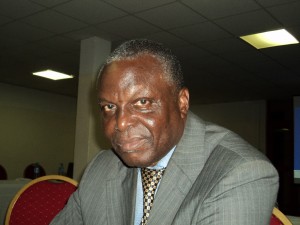
COP 20 in Lima, Peru is an important event that its outcome will have a great impact on the global climate and development agenda. It is coming with the background of the UN Secretary-General Summit of the World Heads of States in September 2014, the IPCC Report and the recent meeting of the G20.
The COP 20 outcome is expected to be a major Agenda for COP 21 in Paris, France in 2015. It is expected that it will provide the platform for global legally binding agreement towards a low carbon world.
Nigeria is a member of the Africa Group and her views are aligned to that of the Africa Group.
The position of the Africa Group on some of the issues are:
Green Climate Fund
This is one of the key issues at COP 20 especially with the mobilisation and sourcing of the GCF. The response has been slow. However, with the outcomes of the UN Summit in New York last September, the Summit of G20 in Australia and involvement of the private sector, it is hoped more contributions will come into the Fund. The commitment of $3 million by the United States President gave some hope. It is certain that it will have effect on the COP 20 negotiations. We need to take our minds back to the last three COPs and the way they ended.
It is expected that, by 2015, the indicative level of resources should reach the level of $44 billion.
The AGN’s Approach
The GCF should develop allocation criteria that allows for fair share of access to the means of implementation between developing countries. This should include needs and geographic balance.
We expect the completion of the operational policies of the Board as soon as possible including on country ownership and access modalities.
The GCF, as a cornerstone of the finance landscape, needs to reduce transaction costs and duplication across the finance landscape.
The GCF should be able to have entry and access points to global financial architecture, while ensuring that the Fund operates on ‘learning by doing basis’ particularly when it comes to the direct access modalities.
Standing Committee on Finance Report to the COP
While exploring outcomes of the work of the Standing Committee on Finance, the committee will consider the summary and recommendations by the SCF on the 2014 biennial assessment and overview of climate finance out flow.
Similarly, it will deliberate on the executive summary of the technical paper on the fifth review of the financial mechanism of the Convention, as well as:
Long Term Fund
The International Rights of Nature Tribunal will convene in Lima, Peru during the 20th UN COP on Climate Change to hear 12 international cases that are aligned with conference’s priorities. Each case will be reviewed within a framework based on Rights of Nature and the Universal Declaration of the Rights of Mother Earth.
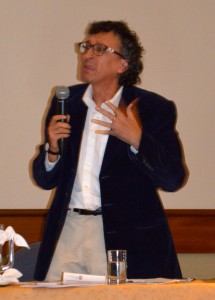
“We the people assume the authority to conduct an International Tribunal for the Rights of Nature. We will investigate cases of environmental destruction which violate the Rights of Nature,” Prosecutor for the Earth, Ramiro Avila, declared during the opening of the world’s first Tribunal on the Rights of Nature in January in Quito, Ecuador.
The diverse international panel of judges on the Tribunal in Lima includes:
Alberto Acosta, Tribunal’s President, economist and former President of the Constituent Assembly from Quito, Ecuador.
Verónica Mendoza, Peru Congress member, representative of the region of Cusco.
Raúl Prada Alcoreza, Philosopher, sociologist, author, former member of the Bolivian Constituent Assembly of 2006-2007, Bolivia.
Hugo Blanco, Political leader, leader of the Confederación Campesina del Perú, Peru.
Tantoo Cardinal, actress (e.g., Dances with Wolves) and activist from the Tar Sands of Canada.
Blanca Chancoso, Kichwa leader and educator from Cotacachi, Imbabura, Ecuador.
Edgardo Lander, sociologist, professor, from Venezuela.
Tom Goldtooth, Dine’/Dakota, director of Indigenous Environmental Network from MN, USA
Anibal Quijano, sociologist and humanist thinker. Professor of critical theory, Perú.
Francios Houtart, professor, philosopher, theologian, from Belgium.
Osprey Orielle Lake, Co-Founder and Executive Director, Women’s Earth & Climate Action Network, USA
Rocío Silva Santiesteban, National Human Rights Coordinator, author, professor, Perú
Atossa Soltani, founder and Executive Director of Amazon Watch, USA
Terisa Turner, professor Sociology and Anthropology, former UN Energy Specialist, Canada
Ramiro Ávila, environmental attorney from Ecuador serves as the Prosecutor for the Earth.
Natalia Greene and Robin Milam, Global Alliance for the Rights of Nature, serve as Secretariat.
The cases and lead presenters include:
Climate Change and False Solutions (Pablo Solón, Bolivia: Nnimmo Bassey, Nigeria)
BP Deepwater Horizon Oil Spill (Esperanza Martínez, Ecuador)
Hydrodraulic Fracking (Shannon Biggs, United States; Martin Vilela, Bolivia)
Chevron/Texaco Oil Devastation (Pablo Fajardo, Ecuador)
Yasuní-ITT Oil Development (Yasunidos, Ecuador)
Great Barrier Reef (Michelle Maloney, Australia)
4 Amazon River Basins of Peru (Sarah Kerremans, Jose Fachin, Aurelio Chino, Peru)
Belo Monte Dam (Representatives Movimento Xingu Vivo Para Sempre, Brasil)
Bagua Defenders of Earth (Bagua Community leaders)
Conga-Cajamarca Mine (Milton Sanchez, Marco Arana, Perú)
Forests and REDD+ (Casandra Smithie, USA)
Condor Mine Open Pit Copper (Domingo Ankuash, Ecuador)
Indigenous rights activist Casey Camp-Horinek (Ponca from Oklahoma, USA) and Patricia Gualinga, an indigenous of the Amazon and director of Sarayaku, will provide expert witness testimony on the critical importance of Rights of Nature.
“What will happen if the temperature increases more than 2 °C? “A third of the population of animals and more than half of the plants on Earth could disappear.” Listing violations to the Rights of Mother Earth related to climate change, Pablo Solon went on to add, “We need a new system of harmony between human beings and Mother Earth that replaces the capitalist system of infinite growth for the accumulation of capital.”
The International Tribunal will be held at the Gran Hotel Bolivar on Plaza San Martín, Jirón de La Unión 958, in the historic district of Lima. The Public is invited to attend free of charge. The Tribunal begins at 8:30am and concludes at 19:00 on Friday December 5 and Saturday December 6, 2014. Six cases will be heard with closing responses from the Tribunal judges each day.
The Global Alliance for Rights of Nature was founded at a gathering in Ecuador in 2010, two years after Ecuador became the first nation in the world to adopt Rights of Nature in its Constitution and Bolivia passed its Law of the Rights of Mother Earth. Across the United States dozens of communities have adopted local rights of nature laws within the framework of a Community Bill of Rights in recent years.
The Rights of Nature movement draws on the wisdom and cosmovision of indigenous peoples in positing a new jurisprudence that recognises the right of nature in all its forms to exist, persist, evolve and regenerate.
SY Design, an internationally recognised hotel architecture and interior design firm, has been hired to design Ambassador Heights, the new luxury residential development at the Moevenpick Ambassador Hotel in Accra, the Ghanaian capital city. The firm was responsible for the creation of the coveted suites and Presidential Suite at the Ambassador Hotel in addition to recent work on impressive projects including the Four Seasons London, Four Seasons Beirut, and Moevenpick Beirut.
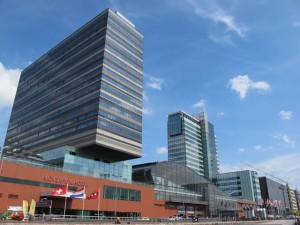
SY’s vision for Ambassador Heights, “is to create a secure sense of place that allows each homeowner to feel as though they are on vacation while in the heart of the city,” discloses founding principal, Simon Yammine.
“We have paid particular attention to allowing nature and the outer green spaces and surrounding gardens to compliment the interior of the homes. Blending outside within through the use of beautiful glass features throughout the residence,” he adds
The exterior and interior of the homes will be an extension of the five-star luxury reflected within the surrounding hotel, he points out, adding that timeless elegance and sophistication will be felt across all elements of the residences from the fixtures, to the fittings, to the appliances. In addition, custom designed furniture packages are currently being produced by SY Design for the owners of Ambassador Heights.
Yammine adds, “The Ambassador Heights Furniture Package will further upgrade the luxury of the residence and will include the furniture, fixtures, and equipment (FF&E) and operating, supplies, and equipment (OS&E). This will encompass everything from stylish yet comfortable living areas, to beautiful chandeliers, to fine cutlery, to high-end branded technology, to one of a kind artwork. Subtle African touches will be seen throughout paying tribute to local customs and culture.
“The furniture package will complete a move in ready residence and will allow homeowners to include their property in a short term rental management programme, which will be operated by the hotel giving homeowners the best of luxury and investment flexibility.”
Ambassador Heights is on schedule for completion in the fourth quarter of 2015.
For effective management of Nigerian cities, authorities must put in place legal and administrative framework, which must be jealously guided and strictly adhered to by the relevant professionals within the real estate sector, the Nigerian Institute of Town Planners (NITP) has said.
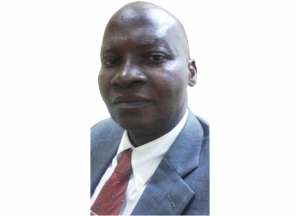
A major highlight of the annual conference is the election of Dr Femi Olomola as the 21st NITP President. In his acceptance speech, he pledged a 10-year development plan for the Institute and commencement of a yearly National Urban Settlement Summit.
Olomola also plans to create at least five million units of jobs per annum for registered town planners via the introduction of a Land Use Planning Report, which would be accompanied with applications for building permits, issuance of certificate of occupancy, and opening of corporate accounts with banks.
At the opening of the conference, the Vice President, Namadi Sambo, noted that with current state of urbanisation, Nigeria’s population stands at the threshold of becoming predominantly urban in the near future, having more than 800 urban settlements, especially, Lagos State that is already a megacity of about 20 million people, coupled with about other 10 cities that their population are also in millions.
In his address, the NITP outgone National President, Steve Onu, said that, over the years, the call has been on the need for planning human settlements that have been emerging sporadically, leaving the authorities helplessly in search of ways to navigate through the challenges posed by the sporadic developments.
According to Onu, even though these settlements have emerged, in most cases, without any development plan and have grown from small towns to cities, to metropolis, megalopolis and as in Lagos, to a megacity, their administrators are faced with the basic necessities of life as well as the necessary physical and social infrastructure to make them a live-able environment.
President of the Town Planners Registration Council of Nigeria (TOPREC), Professor Layi Egunjobi, was of the view that urban planners are currently facing formidable challenges managing the consequences of rapidly growing cities and evolving new strategies that would make the city centres of economic development in the face of sharply limited recourse.
According to Egunjobi, currently, 3.3 billion people are already living in cities and that, by 2030, that number will have risen to almost five billion. The total population is increasing by 280,000 people per day, while the bulk of this increase is occurring in less developed regions.
“Managing our cities has become one of the most critical challenges of the 21st century as a result of the uncontrolled and unplanned sprawling of our cities. This rapid process causes a lot of different ecological, economic, social and infrastructural problems and risk. Considering the high density and large number of inhabitants combined with the accelerated urban development, cities in particular run highest risks in cases of natural and man-made disasters,” he said.
Furthermore, Egunjobi emphasised that management of cities in developing economy is a concern to urban and regional planning professionals in Nigeria, noting that cities and massive conurbations are complex and dynamic systems that reproduce the interactions between socio-economic and environmental variables at local and global scales.
But despite their importance for economic growth, social wellbeing and sustainability to present and future generations, cities have not received the level of attention they require in the study of global economic change. They are not only risk areas; they also hold best chances for a sustainable future. They are the engines of economic growth and social development.
“Therefore, there is the need to adopt best practices in approach and procedures towards the attainment of identifying spatial tools, general principles, norms and standards.
“All these are meant to lead to reliable and accessible spatial information, and providing guidance to relevant authorities, agencies and institutions towards successfully addressing the problem of rapid urbanization and management in Nigerian cities,” he stated.
President of Ghana Institute of Planners, Steve Yirenkyi, commended the theme of the conference as very apt that could not have come in a better time. He said that in West Africa and in the wider Africa, when an economy grows, everything prospers except the cities and its landscape.
“As people become rich and adopt affluent lifestyles, they begin to flout the laws governing the cities. Everybody flocks to the city and want to do business anywhere in the city.
“In this situation, city management and urban governance go out of control because planning standards are no longer respected; regenerating the city cannot be sustained due to twin factors of cost and pace,” he said.
Similarly, the outgone Chairman of Lagos Chapter of the institute, Ayo Adediran, praised what he described as “the good works” of the current administration in Lagos State under the leadership of Governor Babatunde Fashola
“For those who are returning to Lagos after a long vacation you could have observed the transformations going on in all sectors of the city development and management. These range from transportation, housing, urban regeneration, security, education, health, sports, tourism and urban planning among others. The most gratifying of these is the contribution of the State Government to urban planning” he said, adding that as part of the key development agenda of sustainable environment and physical planning, the State government has initiated many reforms in urban planning and development with a view to giving the mega city a new face.
We, the representatives of Nigerian Civil Society under the aegis of Climate and Sustainable Development Network of Nigeria (CSDevNet) held nation-wide consultations and mobilisation meetings on the imperatives of Climate Justice and Post-2015 Agenda as well as draw strategies and action plans for a robust participation in COP 20/CMP10. The meetings which took place from the 15th to 20th of November 2014 across the six regions in the country drew participants from Government, CSOs, Media, International Development Partners, grassroots community practitioners, trusts, farmer cooperatives, federations of slum dwellers and pastoralists, home based caregivers, youth, women and faith-based organisations, including those working on child welfare, the elderly, disabled and those focusing on livestock and animal welfare.
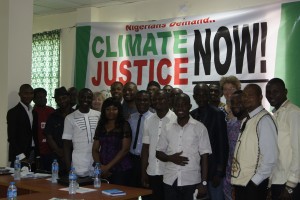
Recognising: the role of Nigeria to speak with one voice along with other African countries at the forthcoming Lima COP 20 and desirous that this one voice should be that of and be informed by realities of the local communities; and the fact that non-state actors contribution to the UNFCCC process and its outcome is essential for informed policy formulation and monitoring of its implementation at all levels;
Acknowledging: that these meetings held at a time that the world is expressing its deep solidarity with the families of the abducted Chibok schoolgirls and the people of North-East Nigeria, we hereby join the global call for solidarity and compassion with the Chibok families and we say “Bring Back Our Girls, Now and Alive”!
Affirming: the authority of the Nigerian Civil Society and communities, as the expression of the sovereign will and voice of the people;
Concerned: that Africa which contributes the least to the cause of climate change now suffers the most compared to other regions of the world;
Noting: the release of the Synthesis Report of the IPCC’s 5th Assessment Report that cited evidence of increasing warming globe and its devastating impacts in Africa and Nigeria in particular;
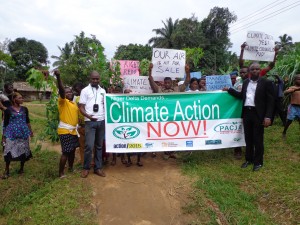
Expecting: that the UNFCCC-COP 20 in Lima will produce the first draft of the Post 2020 Climate Agreement that should be adopted as legally binding Climate Change Treaty during the UNFCCC-COP 21 in Paris by 2015 and that this treaty will be responsive to the climate change challenges in Nigeria;
We hereby declare and adopt the following as the Nigerian position for LIMA COP 20:
Finance
Developed countries must begin to manifestly honour and deliver on their promises of providing $100 billion a year by 2020. In line with the Warsaw decision on finance, annex 1 countries must now scale up their pledges to fulfil their obligation to provide adequate, new and additional funds as this amount is far from all estimates of climate finance needed by developing countries.
As COP 20 beckons in Lima, developed countries should pledge at least $20 billion in grants towards the initial resource mobilisation of the Green Climate Fund. We consider it as vital that these pledges are announced before the COP so they do not become part of the bargaining in Lima.
Adaptation
Climate change, if not addressed in time, is expected to exacerbate Nigeria’s current vulnerability to weather swings and limit its ability to achieve national aspirations. We therefore call on our government to build resilience and define priority adaptation actions, building on the 2011 National Adaptation Strategy and Plan of Action on Climate Change (NASPA-CCN).
Agriculture as a major contributor to global greenhouse gas emissions still reels under the warming effect of climate change especially in developing countries through higher temperatures, greater demand for water for crops, more variable rainfall and extreme climate events such as heat waves, floods and droughts. We therefore call for concerted action and climate resilient mechanisms and strategies that will strengthen food security, adaptation and mitigation as well as contribute to sequestering greenhouse gas emissions and capturing carbon in the soil.
Adaptation efforts should systematically and effectively address gender-specific impacts of climate change in the areas of energy, water, food security, agriculture and fisheries, biodiversity and ecosystem services, health, industry, human settlements, disaster management, and conflict and security.
Developed countries must compensate Nigeria in particular for the full costs of avoiding harms, actual harms and damage, and lost opportunities for our development resulting from climate change. We oppose any efforts to establish adaptation as an obligation not a right, or to use adaptation as a means to divide or differentiate between developing countries.
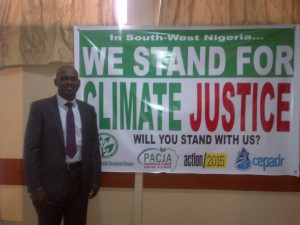
Loss and Damage
The establishment of an international mechanism to provide expertise to help developing nations cope with loss and damage caused by climate impacts will remain an exercise in tokenism until the mandate and scope of the mechanism are strengthened to meet the needs of the vulnerable. In agreeing to establish a loss and damage mechanism, countries have accepted the reality that the world is already dealing with the extensive damage caused by climate impacts, and requires a formal process to assess and deal with it, but they seem unwilling to take concrete actions to reduce the severity of these impacts
Technology Transfer
Developed countries must remove intellectual property rights, pay full incremental costs of technology transfer to protect developing countries and contribute for peaking and declining of global emission. We oppose efforts to sell rather than transfer appropriate technologies, or to strengthen rather than relax intellectual property rights. Developed and developing countries should support the adoption and development of indigenous and locally innovated technology as well as ensuring efficiency in technology transfer and deployment.
Mitigation
Developed countries must commit to cutting their domestic greenhouse gas emission to keep with the IPCCC AR5 and to keep global warming well below 1.50C to peak by 2015 and decline thereafter to at least 80% below 1990 levels by 2050.
Developed countries should provide financial and technical resources for clean, accessible, sustainable energy, low-carbon development and the implementation of effective, pro-poor adaptation measures in Nigeria.
Post-2015 Agenda
We believe that the year 2015 is critically important as processes that will potentially shape development frameworks across the globe will be concluded by 2015:
We view the aforementioned processes as inter-related and dependent on each other. Sustainable Development Goals cannot be attained if the global community fails to heed the recommendations by science and act decisively on climate change. At the 2012 Rio+20 Conference, all countries agreed that climate change is a major obstacle to sustainable development and poverty eradication.
This is supported by the experience of people living in poverty and vulnerability and major UN reports feeding into Post-2015.
Science further underlines the immediate need for action in all areas including international development. The urgency for action is underpinned by climate science and the window of opportunity for avoiding dangerous climate change is rapidly closing.
The Post-2015 Framework must therefore help to make climate action in all countries happen without further delay and must support poor people, particularly in Africa and Nigeria to build resilience so as to adapt to climate impacts they are experiencing already.
The post-2015 framework should address all risks and hazards, both natural and human-made, including conflict. Moreover the framework must be part of, not separate from other development and environmental frameworks so that disasters, development, poverty and climate change are strategically integrated, particularly at the community level. The framework should be underpinned by the four guiding principles agreed at the Global Platform for Disaster Risk Reduction 2013: inclusion, equity, people-centred and environmental sustainability.
The post-2015 framework should prioritise support to high-risk countries like Nigeria and populations disproportionately impacted by natural and human-made hazards and disasters.
The post-2015 framework should provide strategic guidance for the redirection of resources from post-disaster recovery towards disaster risk reduction and sustainable development that addresses underlying causes of disasters risk.
The post-2015 Agenda should prioritise high frequency, low-severity weather-related disasters, particularly in African countries and areas of insecurity, insurgency and fragility.
With many countries, cities, and states billed to hold elections this year and next, Civil society calls on citizens of such countries to pile up pressure on their aspirants until climate change becomes embedded in their manifestoes, not just as an environmental issue but a political agenda necessitating urgent attention of all.
Climate action bordering on climate-smart agriculture, re-shoring the economy, sustainable land planning, alternatives to the car-culture, energy sobriety, eco-housing, ethical finance, social and environmental conversion of manufacturing, ethical consumption, a new share of wealth and work, community support, waste reduction and recycling, preservation of common goods such as water, soil, and forests should be on the front burner as 2015 beckons.
With a membership of over 50 organisations cutting across the six geo-political zones in Nigeria, Climate & Sustainable Development Network of Nigeria (CSDevNet) brings together organisations, comprising grassroots community practitioners, trusts, federations of slum dwellers and pastoralists, home based caregivers, youth, media, women and faith-based organizations, including those working on child welfare, the elderly, disabled and those focusing on livestock and animal welfare, to commonly promote and advocate pro-poor, climate-friendly and equity-based responses to climate change.
CSDevNet aspires to unify and coordinate isolated civil society efforts on climate change advocacy in Nigeria to ensure that people-centred response mechanisms are accorded desirable attention and relevance as climate change is increasingly mainstreamed in national and global poverty reduction and sustainable development strategies and actions.